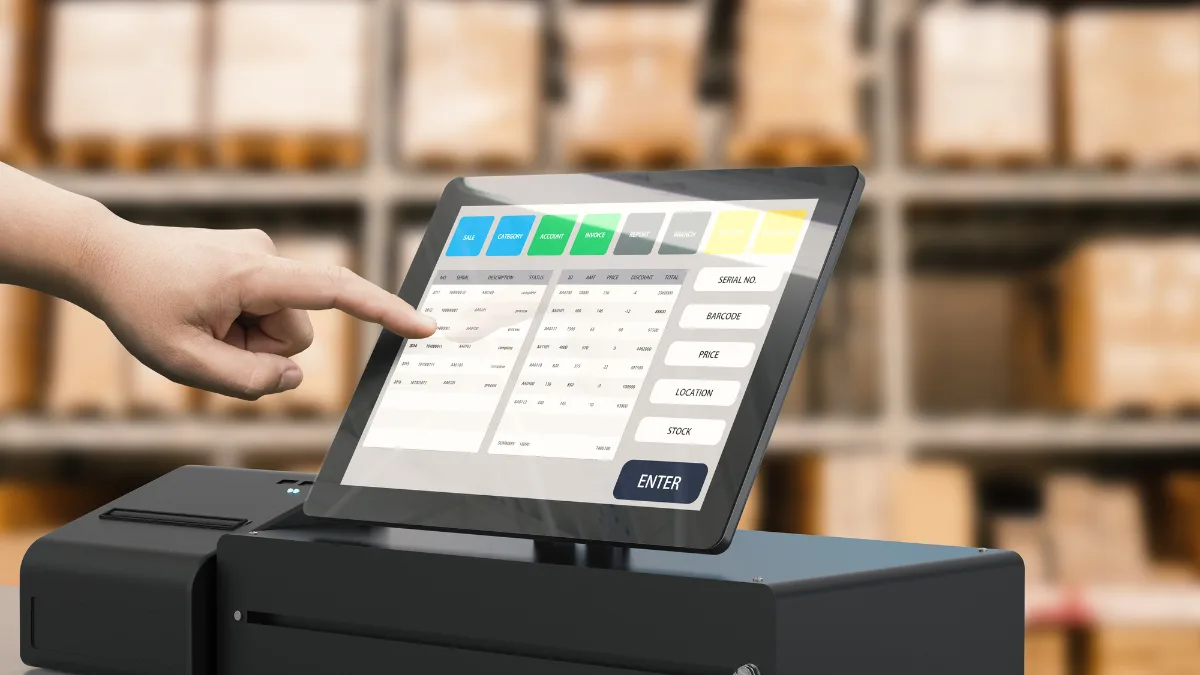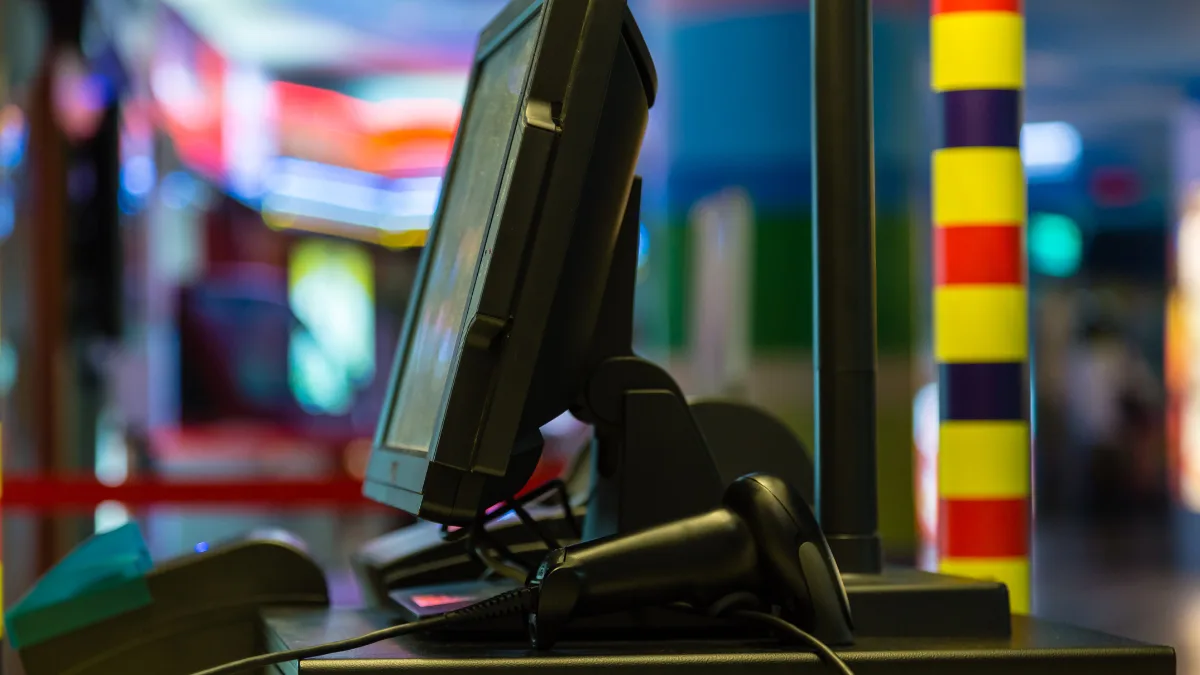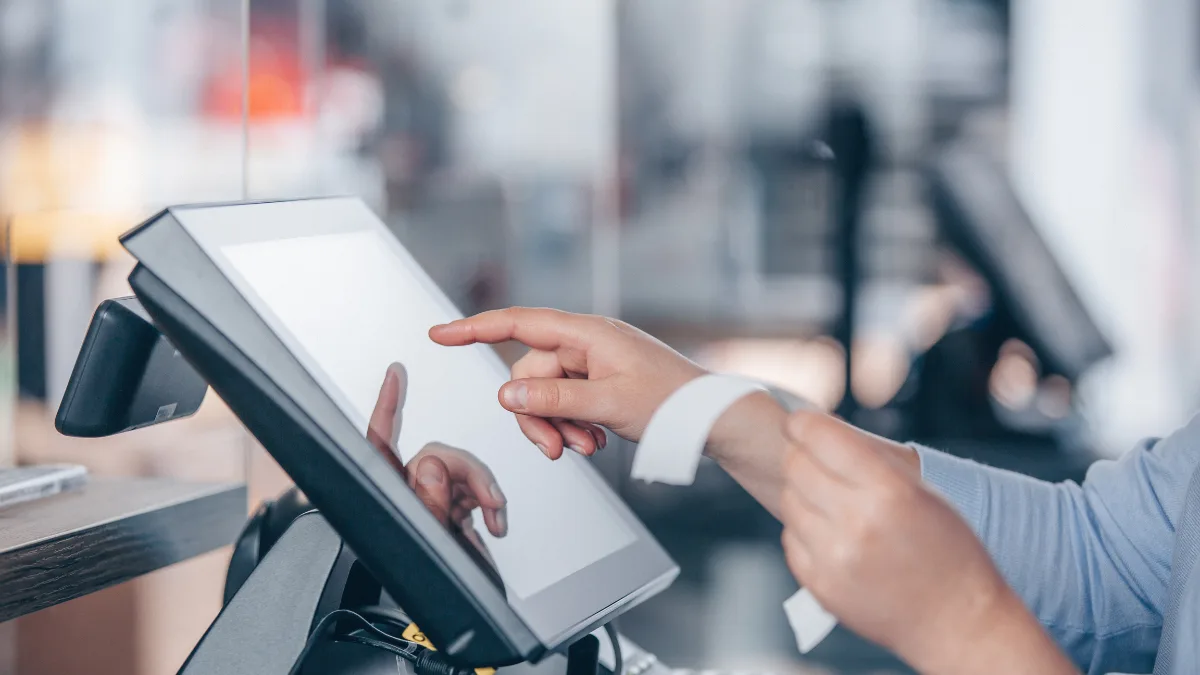Apart from EDC (Electronic Data Capture) which is a cashless payment tool, another device that is rarely known is the (Point of Sale) POS machine.
Having many features such as tracking inventory, sales reports, customer management, and connecting with a digital payment system, the POS machine becomes a device that is used in various types of businesses from retail stores, and restaurants, to other large businesses.
This article will take an in-depth look at POS machines, from the definition, working methods, types, benefits, and regulations governing their use in Indonesia.
What is a POS Machine?

A POS (Point of Sale) machine is an electronic device used to manage sales transactions. Not only that, it can track inventory, view sales reports, and connect with digital payment systems.
This machine is usually equipped with a monitor, keyboard, receipt printer, cash storage drawer, and barcode scanner. In modern retail businesses, this tool is often found as a fast and good transaction solution for recording financial data.
How Does it Work?
The sales transaction process of a POS (Point of Sale) machine includes the scanning of goods to payment. Here is how it works:
- Product scanning: Items purchased by customers are scanned by the cashier using a scanner or manually entering product data into the POS machine.
- Transaction calculation: Items that have been scanned or inputted will be totaled, including any taxes and discounts.
- Payment process: The customer selects the desired payment method such as debit/credit card, or other digital payments, and then the transaction is validated.
- Printing the receipt: After a successful payment process, the POS machine will print a receipt as proof of purchase.
- Inventory stock reduction: The POS system will automatically deduct inventory stock according to the inputted data.
- Sales report: All forms of transactions made on the POS system will automatically generate sales reports.
The Types of POS Machines

POS machines have several types of devices according to different needs, here are some of the commonly used types:
- Traditional POS (Hard POS): Uses computer hardware, for example, used in cash registers.
- Tablet POS: Using a tablet as a device, usually found in modern coffee shops.
- Cloud POS: Using software that is connected to the internet.
- Multichannel POS: Using software that allows connection in various sales such as physical stores and online stores simultaneously.
The Benefits
By using a POS machine, there are several key benefits that customers and merchants can enjoy. Here are some of the benefits:
1. Digital payment method
The main virtue of POS machines is indeed a digital payment method. With this machine, customers can determine payment according to their preferences. Various non-cash payment methods such as debit/credit cards, QRIS, or e-wallets can be made.
2. Record transactions in real time
One of the advantages of a POS machine is its ability to record transactions. All kinds of transactions can be read by the POS system whether from sales, purchases, or returns. Transaction recording can also be accessed in real-time, making monitoring easier.
3. As inventory management
Another advantage of the POS machine is that it can be used for inventory management. With this device, businesses can easily keep track of stock inventory. Goods that sell quickly or slowly can be easily monitored, thus making the procurement process easy.
4. Fast and efficient
With POS machines, the payment transaction process will be faster and more efficient. By automatically scanning purchased items and digital payment processes, the shopping transaction process becomes faster. So that customers do not have to wait too long to make the payment transaction process.
The Regulation in Indonesia

The POS machine uses communication technologies such as Bluetooth, NFC, cellular network (4G), or WiFi that operate within a specific frequency spectrum. In Indonesia, any Bluetooth, NFC, cellular network (4G), or WiFi-based wireless device is required to have DJID (Directorate General of Digital Infrastructure) under the Ministry of Communication and Digital (KOMDIGI).
POS machine regulation is based on KEPMEN No. 260 Tahun 2024 for Bluetooth and NFC, KEPMEN No. 352 Tahun 2024 for cellular network (4G), and KEPMEN No. 12 Tahun 2025 for WiFi, which requires all radio frequency-based devices, including automatic POS machine, to meet specific technical standards before being sold in the country.
The DJID certification ensures that the product meets government safety and quality regulations and does not interfere with other communication devices. The certification process involves technical testing, such as frequency adjustments, safety checks, and compatibility with the surrounding environment.
Once the tests are completed, products that pass are listed in a Test Result Report, which confirms that the product is safe and ready for sale in Indonesia. This report reassures customers that the product meets technical standards and is secure.
For companies wanting to sell a POS machine in Indonesia, we are available to assist with this process. This service includes preparing technical and legal documents, conducting required testing, ensuring compliance with regulations, helping companies streamline the certification process, and giving consumers confidence in certified products. [UN]

